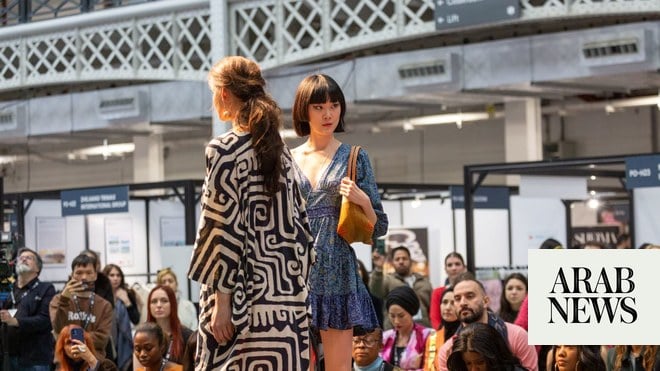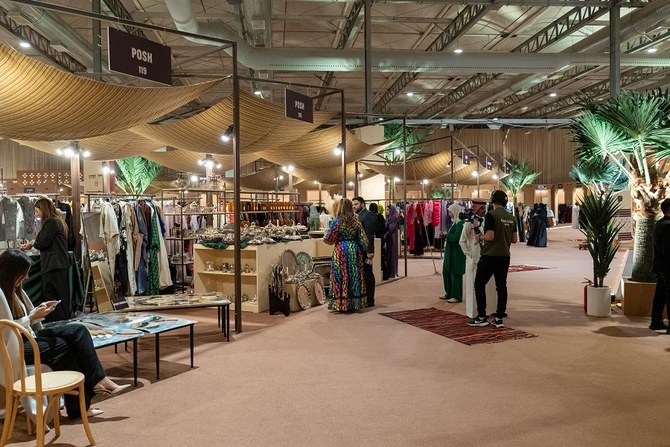
Exhibitors from Turkey showcased innovative new materials, including leather made from tea leaves
Business representatives shared insights on where they think the fashion industry is headed in terms of sought-after materials
LONDON: Source Fashion, held at the Olympia London exhibition space from Feb. 12-14, brought together manufacturers, fabric producers and technology providers from around the world.
For the latest updates, follow us on Instagram @arabnews.lifestyle
Arab News spoke to exhibitors from Turkey, many of whom were scrambling to help fellow citizens suffering in the aftermath of the devastating earthquake. DH Group CEO Faruk Hamud said a special team from his company had been set up to supply polar fleece blankets, while Umut Akar from Filteks Moda, explained operations had been shut down for two weeks with staff helping to provide hot meals and homeless people being given shelter in the factory.
Source Fashion, organised by Hyve Group, unites manufacturers from key sourcing regions around the world with high-profile retailers, brands, and designers who are looking to responsibly and sustainably source new products.
We spoke to Serkan Yarar, Director of Y&B Group Textile A.S., who showed us his company’s remarkable new fabric that looks and feels like leather – but is made out of tea. Y& B collaborated with Çaykur Company, the largest tea producer in Turkey, which supplies a dried version of the tea plant direct from its factories. The tea is then combined with biopeel and cotton to produce the “leather,” with tea constituting 60 percent of the finished material.
“We are sending samples to all of our customers and they are very excited,” said Yarar, who noted that “big brands are looking for sustainable new fabrics and many have declared that by 2025 or 2026 they won’t use any synthetic fibres or fabrics.”
Akar from Filteks Moda, sounded a note of caution about over-stated sustainability claims in the fashion industry. “We are looking at green washing not real sustainability. There is no sustainability at all until we get rid of synthetic fibres,” he said.
Currently, he sees a big demand for interlock fabrics — interlock is soft, firm and absorbent making it ideal for active wear. “We sold 800,000 interlock pieces last season: T-shirts, pants and shorts,” he said. He added that at Filtex Moda, all materials are produced to the LEED (Leadership in Energy and Environmental Design) standard. “We wanted to have this because in 2025 there will probably carbon emission taxes in the US and Europe,” he said.
Sheima Lingerie CEO and Founder Ahmet Kondur said that next year its factory will use solar energy for 100 percent of its energy needs. The high-end company does a lot of business with the Middle East and described customers from the Gulf region as having a preference for more “sophisticated, elaborate items.”











